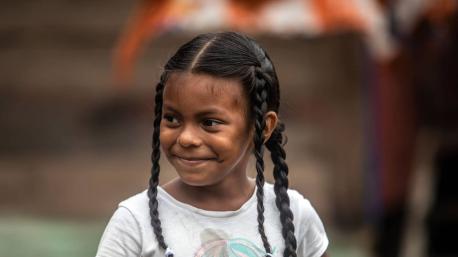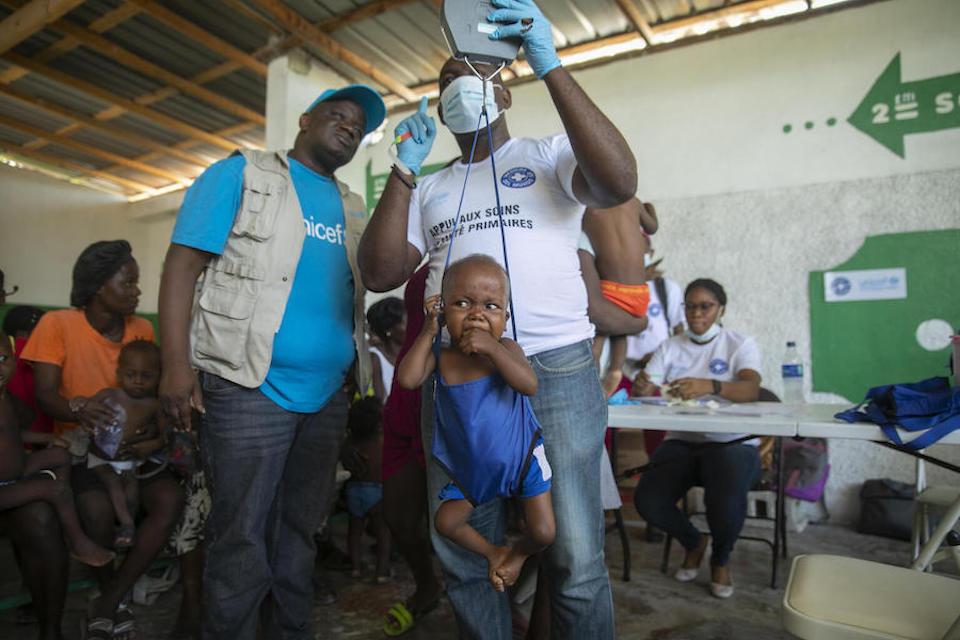
UNICEF in North America
UNICEF's work in North America focuses on providing health, education, protection and more to vulnerable children in Mexico, Central America and the Caribbean.
How to help vulnerable children in Mexico, Central America and the Caribbean
UNICEF's emergency response and programs in health, education and protection in North America focus on meeting the growing needs of vulnerable children and families in Mexico, Central America and the Caribbean, where there are multiple humanitarian crises.
A third of Haiti's population — including 2 million children — require emergency support and protection, for example. In El Salvador, Guatemala and Honduras, there are at least 8.3 million people in need of humanitarian assistance due to poverty, violence and climate shocks. And the effects of the COVID-19 pandemic continue to affect millions of people across the region.
Through its country offices, and in partnership with governments and other local organizations, UNICEF helps children in Belize, Costa Rica, El Salvador, Guatemala, Honduras, Mexico, Nicaragua and Panama, and in the following island nations and territories in the Caribbean: Anguilla, Antigua and Barbuda, Barbados, British Virgin Islands, Cuba, Dominica, the Dominican Republic, Grenada, Haiti, Jamaica, Montserrat, Saint Kitts and Nevis, Saint Lucia, Saint Vincent and the Grenadines, Trinidad and Tobago and Turks and Caicos Islands.
Supporting and protecting child migrants in North America
Core to UNICEF's mission is protecting the rights of child migrants on their journeys north through Central and South America, while also addressing conditions that force them to flee their homes in the first place — often unaccompanied by a parent or caregiver. This work includes supporting shelters and service providers at the U.S.-Mexico border and along migration routes. Learn more about how UNICEF helps child migrants in the region.
UNICEF's work also focuses on:
- strengthening health systems to improve service delivery, including child immunization
- improving child nutrition and preventing and treating malnutrition
- making sure every child can get a quality education in a safe environment
- building community resilience to hurricanes and other extreme weather events
UNICEF in Haiti
Gang violence in Port-au-Prince has intensified the needs of already vulnerable children in Haiti, a country still recovering from a devastating earthquake and the multi-layered effects of COVID-19, all of which only deepened existing humanitarian needs. UNICEF is on the ground in Haiti working with local authorities to screen and treat acutely malnourished children and to protect against cholera, which has reemerged as a serious public health threat amid rising insecurity.
Learn more about UNICEF's emergency response in Haiti — and how to help.

UNICEF works in over 190 countries and territories to help ensure the world's children are healthy, educated, protected and respected. Help increase UNICEF's impact for children. Donate today.